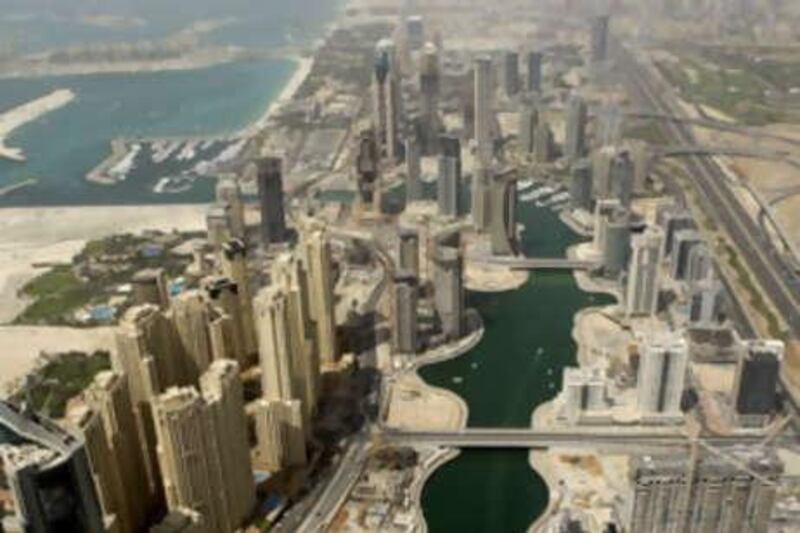DUBAI // While rampant speculation may grab headlines in national property markets, improving regulation and increasing transparency are making them more attractive to investors from around the world, a new research study shows. The global Middle East and North Africa (MENA) report from Jones Lang Lasalle, the property investment and advisory firm, found that Dubai was the most transparent market in the region. The emirate has seen a 12-fold increase in transactions since 2002, which is when the emirate opened up the property market for foreigners and began improving its legal structure.
The total value of the transactions at the end of last year reached Dh460 billion (US$125.34bn), up from Dh39bn at the end of 2002, according to Dubai Land Department data quoted in the report. Jones Lang Lasalle estimated that Dubai could see more than 70,000 property transactions by the end of this year, valued at about Dh700bn. The study covers 82 global markets classified into five tiers, with the top tier the "most transparent" and the fifth the most "opaque". Dubai rose to tier three this year - an area defined as semi-transparent - with Jones Lang Lasalle predicting the emirate will upgrade to a fully transparent tier two market by the end of 2010. "If you superimpose the improvements in regulation on the sales figures, you will see why Dubai has seen a 12-fold increase," said Blair Hagkull, the managing director for MENA at Jones Lang Lasalle.
Abu Dhabi followed closely behind and is rated the third most transparent market in the region after Saudi Arabia, sharing tier three with Dubai. "Abu Dhabi is three to four years behind Dubai's real estate boom and what they have achieved in terms of transparency is remarkable," Mr Hagkull said. Attributing the rising level of transparency in Abu Dhabi to the establishment of a Land Regulation Department in 2005 and the emirate's vision 2030, Mr Hagkull said there was still "a lot to be done in Abu Dhabi" due mainly to foreign ownership limitations.
The report, which puts countries like Canada, Australia, the United States, the UK and France in the top tier, said publicly accessible benchmarks were vital for transparency because they made it easier to predict the future. "Transparency depicts the ease of doing business," Mr Hagkull added. "It ultimately provides the foundation for the investment climate." The rapid growth of the UAE's property market is also having regional and even global implications, reflecting the shift in capital from West to East. The UAE property market is "not a bubble" said Craig Plumb, Jones Lang Lasalle's regional head of research. Market turmoil and growing protectionism in the West, combined with rapid economic growth in the Middle East, has convinced many Gulf investors to keep more of their funds closer to home. Western investors are also moving funds into regional markets. The investment climate is ripe in the region and markets here are getting increased attention from top banks, insurance firms and international funds, Mr Plumb said. In addition to direct investments in property securities or buying actual properties, Real Estate Investment Trusts (Reits) would also open up to allow for new ways to invest in Dubai properties.
"The legislation is approved and Reits can list here," Mr Plumb said, adding that the firm was working on a "number of deals" and that Dubai would see the listing of more than one Reit on the Dubai International Financial Exchange by the end of this year. @Email:skhan@thenational.ae






